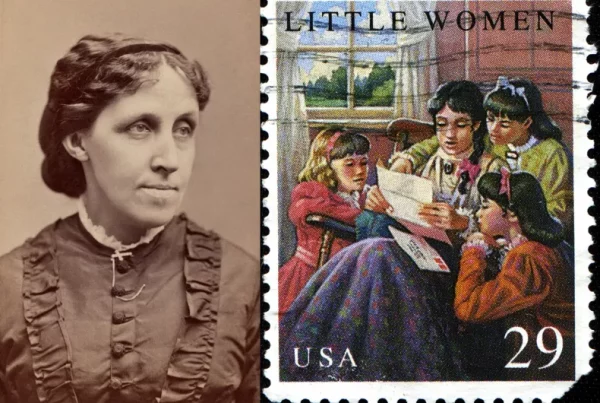
Louisa May Alcott: the name may as well be a synonym for “woman.” Her novel Little Women is a beloved, foundational text for girls the world over. An instant hit upon publication in 1868, the book has never gone out of print in the intervening 154 years. Countless women say that Little Women taught them how to be a woman, opening their eyes to the many paths their lives could take.
And yet, Alcott longed to be a man.
“Always believing she should have been born a boy,” writes John Matteson, in Eden’s Outcasts, his Pulitzer Prize-winning biography of Alcott, “she loved to participate vicariously in the adventures and discoveries of boyhood.” From childhood to old age, Alcott repeated the same sentiments in her letters and journals: she didn’t care for girls’ things; she’d been born with a boy’s spirit; she yearned to be a man, even describing herself as “a gentleman” and “a man.”
Was Alcott a trans man? That vocabulary didn’t exist in Alcott’s time, but, as the Louisa May Alcott Society says, “[It’s] so important to acknowledge that [Alcott] never fit a binary sex/gender/sexuality system.” Read on to learn more about Lou, and how her gender non-conformity influenced her beloved writing.


